Find out about the students in our CDT programme.
Cohort 1
- Anthony Bourached
Email: anthony.bourached.18@ucl.ac.uk
Supervisors: Prof Parashkev Nachev & Dr Robert Gray
Research Project Title: Deep Generative Modelling of Human Behaviour
Project Lay Summary:
- Andre Vauvelle
Content placeholder
- Dominic Giles

Email: dominic.giles.15@ucl.ac.uk
Supervisors: Prof Parashkev Nachev and Dr Ashwani Jha
Research Project Title: High-dimensional counterfactual modelling of lesion-deficit relations in focal brain injury
Project Lay Summary: From the rich data that is acquired for each stroke patient, the selection of treatment is ultimately based upon a reduction to approximate affected volume and anatomy, from which a ‘one-size-fits-all’ approach is taken. Given the variation between ischaemic stroke patients in presentation, response to treatment and outcome, the quantity and complexity of patient-specific information that should be considered in treatment selection must be greater, if the optimal treatment is to be selected at the level of each patient, instead of the population. Applying machine learning methods in a counterfactual framework to observational data, this project involves assessment of the potential and limits of these high-dimensional treatment selection approaches, contributing to this emerging field of clinical application.
- Joseph Farrington

Email: joseph.farrington.18@ucl.ac.uk
Supervisors: Dr Ken Li, Dr Wai Keong Wong, Prof Martin Utley
Research Project Title: TransfuseAI: Developing machine learning models to improve the inventory management of blood products and support the delivery of transfusion medicine
Project Lay Summary: Blood transfusions are one of the most common medical procedures. Managing the supply of blood products is complicated because they have finite shelf lives and because patients can only receive compatible blood products. The move to electronic health records means that a wide range of data is now available, in real-time, within a hospital. We can use that data to train machine learning models, which are capable of learning complex relationships between a wide range of different features (and over periods of time), to predict an outcome - in this case, blood transfusions. Improved prediction of blood transfusions could help to improve patient care by ensuring that the most appropriate products are available when needed and, by providing time to alter treatment, potentially reduce the need for a transfusion. Additionally, the models may save money by reducing waste, and help make best use of a precious resource.
The main aim of this project is to develop machine learning models that can be used to support the management of blood product inventory and the transfusion of blood products to patients. We also hope to use these models to generate recommendations that can improve procedures, and develop software that can be easily adapted for use at other hospitals.
- Peter Woodward-Court
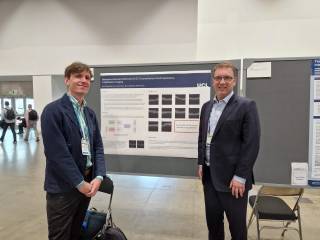
Email: peter.woodward-court@ucl.ac.uk
Supervisors: Prof Danney Alexander & Prof Pearse Keane
Research Project Title: Generative Adversarial Networks for the generation of synthetic scan data in ophthalmology
Project Lay Summary: In recent years we have been able to produce 'synthetic' images using machine learning models. These synthetic images are of such high quality and realism that clinicians often cannot tell they are not real. In my project I am exploring the development of such images using a type of machine learning methodology called Generative Adversarial Networks (GANs). This has many clinical applications including: Training better machine learning models, automated detection of anomalous images, and even 'machine teaching' of clinicians.
- Roy Schwartz

Email: roy.schwartz.19@ucl.ac.uk
Supervisors: Prof. Adnan Tufail & Prof. Clarisa Sanchez
Project Title: Deep learning, large datasets, genome-wide analysis to determine novel pathways in the progression of age-related macular degeneration
Project Lay Summary: Age-related macular degeneration (AMD) is the commonest cause of legal blindness in the western world. Its earliest form is characterised by a subtle build-up of deposits under the retina (the light-sensitive structure coating the inside of the eyeball). Some patterns of deposits have been identified as significant risk factors for progression to late-stage AMD. These deposits, named reticular pseudodrusen (RPD), can be visualised on optical coherence tomography (OCT), a device that uses light rays to visualise the retina’s layers. It is well established that advanced AMD has a genetic component. AMD genome-wide association studies (GWAS) have been highly successful in identifying strong and highly replicated associations of several genetic markers (single nucleotide polymorphisms). However, neither the genetic associations nor risk factors for the development of RPD are currently understood. Being able to actively identify and quantify these deposits in an automated way will aid both the busy clinician managing such patients as well as being able to identify the phenotype for genetic and risk factor studies. The goal of the project is to develop an automated machine-learning algorithm to identify and quantify deposits related to AMD. The algorithm will then be used to identify participants in the UK Biobank, a large dataset with 500,000 participants who agreed to share their genetic information. A GWAS will be conducted to identify novel genetic associations related to RPD, thus hopefully leading to a better understanding of this phenotype and identifying future therapeutic targets.
Cohort 2
- Adrito Das

Email: adrito.das.20@ucl.ac.uk
Supervisors: Prof Danail Stoyanov (PhD) and Mr Hani Marcus (FRCS, PhD)
Project Title: Artificial Intelligence Assisted Neurosurgery
Project Summary: Using computer vision to aid surgeons performing minimally invasive pituitary tumour removal.
- Christopher Tomlinson
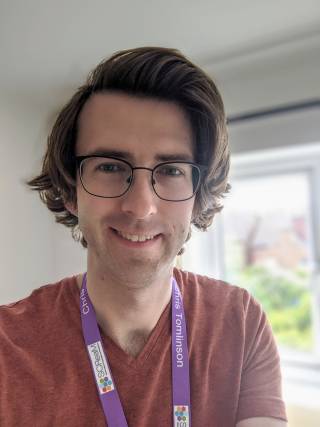
Email: christopher.tomlinson@ucl.ac.uk
Supervisors: Dr Alvina Lai and Dr Ken Li
Project Title: Unlocking Electronic Health Records for Disease Surveillance and Pandemic Intelligence: Informatics & AI-based approaches
Project Summary: Using COVID-19 as a case study, Chris's work seeks to harness the information contained within national-scale electronic health records for disease surveillance and pandemic intelligence. His work spans informatics and policy, such as linkage and clinical coding standards, through to machine learning tasks such as phenotyping, risk prediction and treatment effect estimation. With a clinical background in Anaesthesia and Intensive Care he is particularly interested in how domain knowledge and uncertainty can be leveraged to learn predictive representations that are both robust and interpretable.
- Eva-Katharina Lymberopoulos
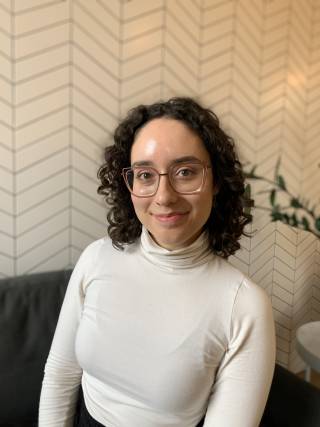
Email: eva-katharina.lymberopoulos.19@ucl.ac.uk
Supervisors: Dr Nikhil Sharma & Dr Muhannad Alomari
Project Title: Leveraging Topological Data Analysis to explore the relationship between the microbiome and neurodegenerative diseases in humans and mice
Project Summary: My project focuses on the link between the microbes living in our guts - the gut microbiome - and different neurodegenerative diseases such as Parkinson's Disease, Alzheimer's Disease, or Motor Neurone Disease. I use mostly use large, open-access, and population-based microbiome datasets, both from humans and mice which are used as research models for these diseases. To properly account for the complexity of the microbiome, I am using a computational method called Topological Data Analysis which can study the shape of data. Using this tool, I aim to identify specific bacteria that could be protective or problematic for these diseases, as well comparing topological signatures between diseases or between humans and mice. Together, this research will inform insights on the role of the microbiome in neurodegenerative diseases, and find new ways of applying topological data analysis, which could be useful to other experiments or clinical trials.
- Isabel Straw
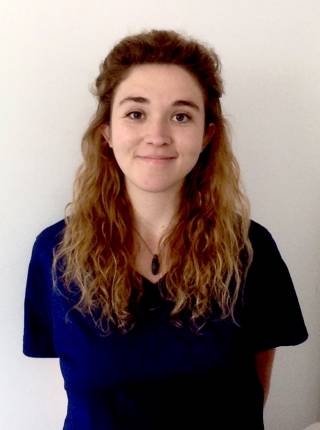
Email: isabel.straw.20@ucl.ac.uk
Supervisor Names: Professor Parashkev Nachev and Professor Geraint Rees
Research Project Title: Representational Ethical Model Calibration – Evaluating and mitigating performance disparities in medical Artificial Intelligence (AI)
Project Lay Summary: Our research investigates whether machine learning methods can be used to expose and adjust for demographic biases within biomedical models to ensure equitable performance across patient groups. In the 1990s the emergence of ‘Evidence Based Medicine (EBM) emphasized the importance of using evidence from controlled, randomised studies in clinical decision-making, yet this reliance on proof has disadvantaged patient groups who were left out of the original equation. The discipline of medicine reflects wider power inequalities in society and for a long time the medical domain lacked the perspectives of women, racial, ethnic, sexual and gender minorities often to the detriment of their health outcomes. In contrast to the current statistical models that treat all patients as a variation from the average, high dimensional AI models present an opportunity to integrate detailed nuanced knowledge that represents individualised truth. High-dimensional digital phenotyping offers a precision that may be able to produce personalised care that is free of socially biased knowledge bases or historic inequalities in access to care. Our aim is to produce models that adjust for all individual variation, avoiding any comparison to a statistical mean, and mitigate discriminatory performance disparities that contribute to health inequalities in wider society.
- James Stainer
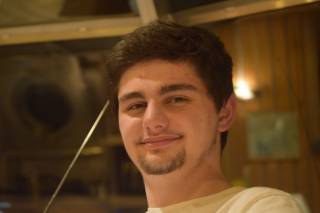
Email: james.stainer.20@ucl.ac.uk
Supervisor Names: Dr Samiran Ray, Dr Mark Peters & Prof. Simon Arridge
Research Project Title: Understanding the Relationship Between Heart Rate and Blood Pressure in Critical Illness using Machine Learning Methods
Project Lay Summary: This research aims to identify patterns of patient physiology in an ICU, to understand the inter-dependencies between heart rate and blood pressure in an unselected population of patients admitted to a paediatric intensive care unit, and forecast changes in blood pressure based on heart rate in the near-future. We aim to apply this to best understand how a child (or adult) is likely to respond to fluids, which may be important in determining a course of treatment in critical care.
- Jamie Norris

Email: jamie.norris.20@ucl.ac.uk
Supervisor names: Prof Karl Friston, Dr Richard Rosch, Dr Gerald Cooray, Mr Martin Tisdall
Research project title: Generative models of abnormal brain dynamics in paediatric epilepsy: the role of nodes and states in generating epileptic activity
Project lay summary: Jamie is pursuing a PhD at the UCL CDT for AI-Enabled Healthcare Systems and the Wellcome Centre for Human Neuroimaging. His focus is on utilising interictal brain activity to model epileptic brain states using a combination of machine learning and network neuroscience tools. His longer-term aim is to use these methods to guide single pulse electrical stimulation in patients undergoing pre-surgical evaluation for drug-resistant epilepsy. He hopes that this will lead to better delineation of the epileptogenic zone and improved surgical outcomes.
- Maria Miscouridou
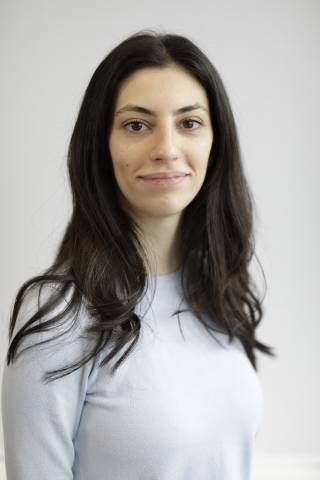
Email: maria.miscouridou.16@ucl.ac.uk
Supervisor Names: Prof Bradley Treeby, Prof Ben Box and Dr Antonio Stanziola
Project Title: Treatment planning for transcranial ultrasound therapy using deep learning
Project Lay Summary: My project aims to obtain accurate and personalised maps of the skull geometry and material properties from MR/CT images. This can accelerate the prediction of the transcranial acoustic field and allow for real-time treatment planning. An MR-to-pseudoCT deep learning method has been developed with the goal of using the pseudoCTs in the context of transcranial ultrasound stimulation. In the future, it can be extended to generate a statistical shape model of the skull, to develop tailored deep learning architectures or to analyse model uncertainty and interpretability. Finally, the models will be rigorously tested using patient data from previous clinical treatments.
- Simon Ellershaw
Content placeholder
- Tina Yao
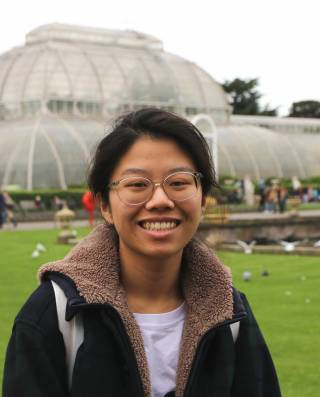
Email address: tina.yao.20@ucl.ac.uk
Supervisor names: Dr Jennifer Steeden and Prof Vivek Muthurangu
Research Project Title: Using Machine Learning to predict patient trajectory for children with univentricular hearts
Project lay summary: Around 1% of children are born with congenital heart conditions. Among the most complex are univentricular defects, affecting around 5 out of 100,000 newborns. Univentricular patients are at high risk of many comorbidities. Precision medicine is required when treating patients with such rare disorders. Using data from the FORCE registry, we can predict the clinical trajectory of a given patient and provide the appropriate interventions to prevent a negative outcome.
Segmentation of the ventricles is required to assess the patient's cardiac structure, partition the image into meaningful regions and extract quantitative measures such as ventricular volume and stroke volume. Segmentation of the heart’s vascular structure is essential for accurate hemodynamic modelling. Currently, manual segmentation is very slow and highly variable.
Although many segmentation models have previously been created to analyse MRI images of normal heart structures, this work will represent the first models made specifically for univentricular patients.
- Victoria Smtih

Email address: v.smith.20@ucl.ac.uk
Supervisor names: Joseph Standing, Frank Kloprogge & Waty Lilaonitkul
Research Project Title: PKPDAI: Unlocking Pharmacokinetic Data from Publications with Natural Language Processing
Project Lay Summary: Pharmacokinetic-Pharmacodynamic (PKPD) models estimate parameters to quantify the time course and action of drugs. PKPD models are used to establish which drug candidates and dosing schedules will yield optimum efficacy and safety, throughout clinical trials and in the clinic. Prior information from similar drug compounds is used to make preclinical PKPD parameters predictions. A centralised, standardised PKPD database is a prerequisite for parameter predictions to benefit from the full potential of Machine Learning. However, in vivo PKPD data is locked away in scientific literature, most comprehensively expressed in tables. Despite the rapid growth in PKPD literature, existing databases which collate information from these studies are manually curated and as such are limited to data on a handful of drugs or lack sufficient data on covariates and study design. Automated information extraction (IE), exploiting natural language processing methods, provides a framework to efficiently extract and filter information from relevant PK tables. Automated Table Data IE can be split into tasks: (a) table classification, (b) named entity recognition (NER) of entities within table cells, (c) linking these entities to a target knowledge base, and (d) relation extraction to understand relationships between entities within and between table cells. PKPDAI focuses on tackling these four tasks using a combination of natural language processing, supervised machine learning and rule-based approaches.
- Aasiyah Rashan
Content placeholder
Cohort 3
- Nikita Hukerikar

Email Address: nikita.hukerikar.21@ucl.ac.uk
Supervisors: Floriaan Schmidt and Chris Finan
Research Project Title: Applying machine learning to determine the value of multi-omics data to understand multimorbidity
Project Lay Summary:
- Tuankasfee Hama
Content placeholder
- Chengzhe Piao

Email address: chengzhe.piao.21@ucl.ac.uk
Supervisor names: Ken (Kezhi) Li & Jun Wang
Research Project Title: An affordable AI-enabled glucose management system for diabetes
Project lay summary: Considering only very few people with Type 1 Diabetes (T1D) can afford the expense of Continuous Glucose Monitoring (CGM) for daily inspecting their real-time Blood Glucose (BG) level, this project aims at predicting the continuous real-time BG level based on sparse inexpensive Self-Monitored Blood Glucose (SMBG) samples (e.g., Finger Stick Blood Test, FSBT) through Deep Learning (DL), Deep Reinforcement Learning (DRL), etc.
- Freya Allery
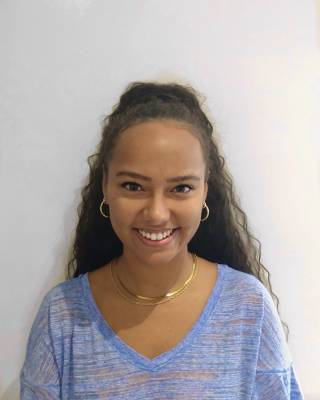
Email: freya.allery.21@ucl.ac.uk
Supervisor Names: Johan Thygesen, Alvina Lai, Nikolas Pontikos, Robert Aldridge
Research Project Title: Improving the completeness, granularity and use of ethnicity data to minimise bias in machine learning predicition models
Project Lay Summary: The aim of this work is to address healthcare inequalities through the lens of ethnicity data in electronic health records, using data linkage of primary and secondary care data to produce more complete and granular ethnicity records. This project is developing these improved groupings to use within risk prediction models that predict incident cardiovascular disease in COVID-19 patients, two diseases where ethnicity-based disparities are known to exist. Through the use of more granular ethnicity groupings and ethnicity-specific models, this work seeks to facilitate a better understanding of the use of ethnicity data in machine learning health research to avoid perpetuating existing inequalities in patient outcomes.
- Quang Nguyen

Email address: quang.nguyen.21@ucl.ac.uk
Supervisor names: Nikolas Pontikos, Honghan Wu & Johan Thygesen
Research Project Title: EyeBERT: a Large Language Model for Clinical Narratives in Ophthalmology
Project lay summary: Natural Language Processing (NLP) refers to a discipline in Artificial Intelligence (AI) focused on creating an effective language interface between human and computer systems. This kind of language AI could help eye care professionals identify patients at high risk of not getting the right care, by automatically analysing millions of patient notes. However, classic Natural Language Processing approaches struggle with some of the nuances of human language in clinical narratives such as identifying the subject of a sentence or if a sentence is negated. A new AI NLP tool known as BERT has recently been developed to address these issues. So far, BERT has been successfully applied to many medical specialities such as psychiatry and cancer but not yet in the field of eye care. In this work, we aim to develop the first BERT model specific to eye care, EyeBERT, using the largest available eye dataset, the clinical patient records of Moorfields Eye Hospital, as well as the scientific literature on eye conditions. We demonstrate that EyeBERT could outperform state-of-the-art language models in SNOMED coding and phenotype extraction.
- Amin Lessan

Email address: mohammad.lessan@ucl.ac.uk
Supervisor Names: Dr. Jamie A. Dean; Professor Christopher A. Clark
Research Project Title: Tracking Glioma Cell Populations Non-Invasively using MRI to Improve Personalized Therapies
Project lay summary: Gliomas are a type of brain tumour which are difficult to manage in part due to the complex assortment of cell types that compose them. Being able to monitor the populations of these various cell types frequently and non-invasively could be useful to clinicians wanting to administer the most ideal therapy for a given patient. This might be possible to achieve using machine learning by extracting useful features from such patients' MRI scans.
- Dominic Williamson

Email: dominic.williamson.21@ucl.ac.uk
Supervisor Names: Prof. Pearse Keane & Prof. Danny Alexander
Project Title: The AlzEye Study – Using the Eye as a Window to Systemic Health
Project Lay Summary: Scientific discovery has increasingly been driven by the availability of large, diverse, high-dimensional datasets - providing a basis for the discovery of new relationships previously unachievable through traditional methods of study design.
Moorfields Eye Hospital and the UCL Institute of Ophthalmology have recently established “AlzEye”, a large linked dataset that combines routinely collected retinal images and relevant ophthalmic data at Moorfields with the national HES (Hospital Episode Statistics) electronic health record database. The primary aim of AlzEye is to characterise the association between imaging-derived retinal biomarkers and chronic complex disorders of ageing, particularly dementia and cardiovascular diseases.
This CDT project applies computer vision and deep learning techniques to the vast amount of longitudinal, multi-modal data contained within AlzEye to study this new field of "oculomics".
- Jennifer Hunter
Content placeholder
- Florence Townsend
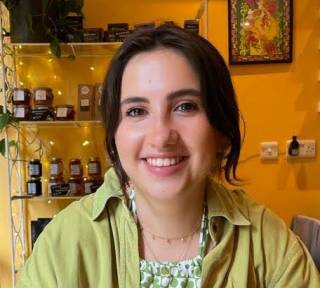
Email address: florence.townend.21@ucl.ac.uk
Supervisor names: Professor James Cole, Professor Andrea Malaspina
Research project title: Motor neuron disease prognosis prediction through multi-modal AI
Project lay summary: Motor neuron disease (MND) is a highly heterogeneous neurodegenerative disorder, with an expected survival time around 2-5 years from symptom onset. Accurately predicting the survival time of MND patients would allow for improved care and treatment planning, as well as improved clinical trial implementation and outcomes. This project will focus on using demographic and clinical data, blood test results, and structural MRI features in a novel way to predict survival times whilst harnessing the interactions between these data types.
- Thomas Frost

Email address: thomas.frost.21@ucl.ac.uk
Supervisor names: Dr Steve Harris and Dr Ken Li
Research Project Title: Use of Reinforcement Learning to Optimise Dosing of IV Infusions in Critical Care
Project Lay Summary: Patients in Intensive Care are often managed on intravenous infusions of various drugs, which tend to have tight therapeutic ranges, undesirable adverse effects outside of these ranges, and variable dose-response across patients. Two such examples are insulin infusions to manage glucose, and sedating drugs for patients on ventilators. This project would look to develop an RL-based approach to recommend tailored, optimal doses for these patients, which clinicians can then choose to follow or ignore as part of daily patient management.
Cohort 4
- Pardeep Vasudev
Content placeholder
- Luke Conroy

Email Address: l.conroy@ucl.ac.uk
Supervisor Names: Dr Andre Altman & Mr Praveen Patel
Research Project Title: Detection and quantification of sports-related concussion and sub-concussion using deep learning ocular biomarkers
Project Lay Summary: Sports–related Concussion is a significant public-health concern and is a particularly difficult condition to diagnose given the current reliance on subjectively interpreted signs and symptoms. A range of biomarkers have been proposed to assist in the diagnosis of concussion including markers based on neuroimaging, blood tests, visual and balance tests. This project examines whether biomarkers derived from visual function and images of the eye can be used to reliably screen for concussion, in particular whether changes in the control of eye movement can be used to identify patients with concussion
- Mustafa Jaafar
Content placeholder
- Nathaniel Kabiri
Content placeholder
- Niccolo McConnell
Content placeholder
- Prathisan Ravindrarajah
Content placeholder
- Mona Sheikh Zeinoddin
Content placeholder
Cohort 5
- Jon Gillham
Content placeholder
- Kendall Feeny-Williams
Content placeholder
- Tej Pandya
Content placeholder
- Douglas Wyllie
Content placeholder
- Eden Ruffell
Content placeholder
- Ruaraidh Campbell
Content placeholder
- Yu Wang
Content placeholder
- Abdine Maiga
Content placeholder
- Lara Carter
Content placeholder
- Ivy Mumuni
Content placeholder
- Ana Durica
Content placeholder
 Close
Close

